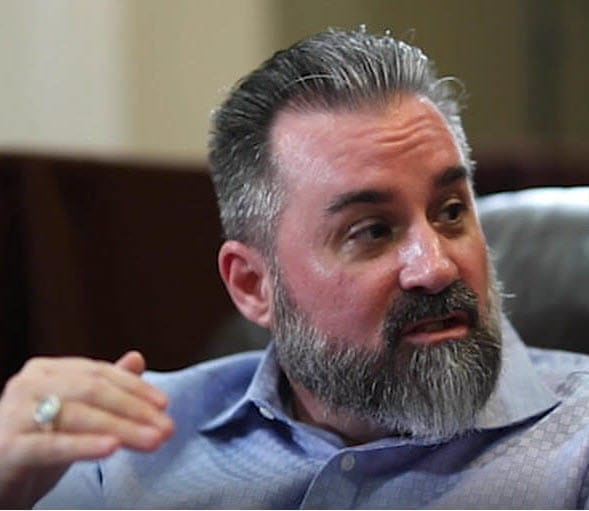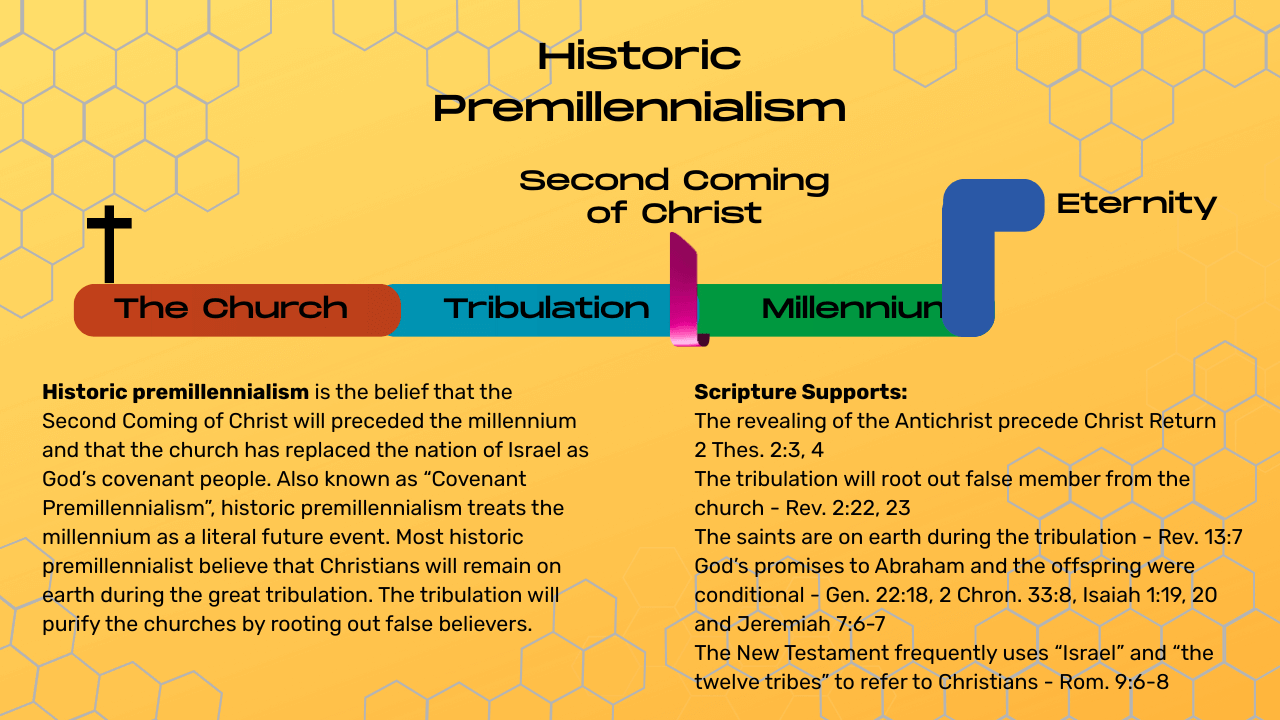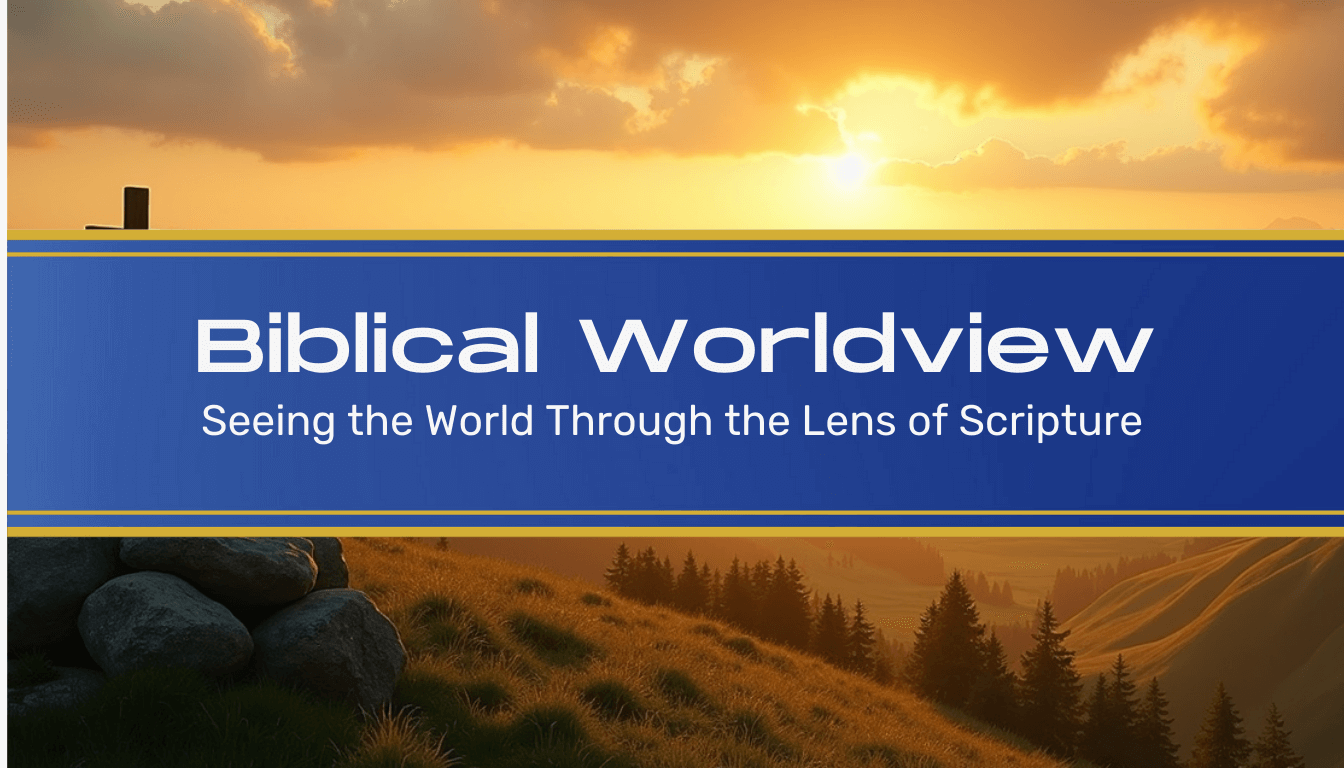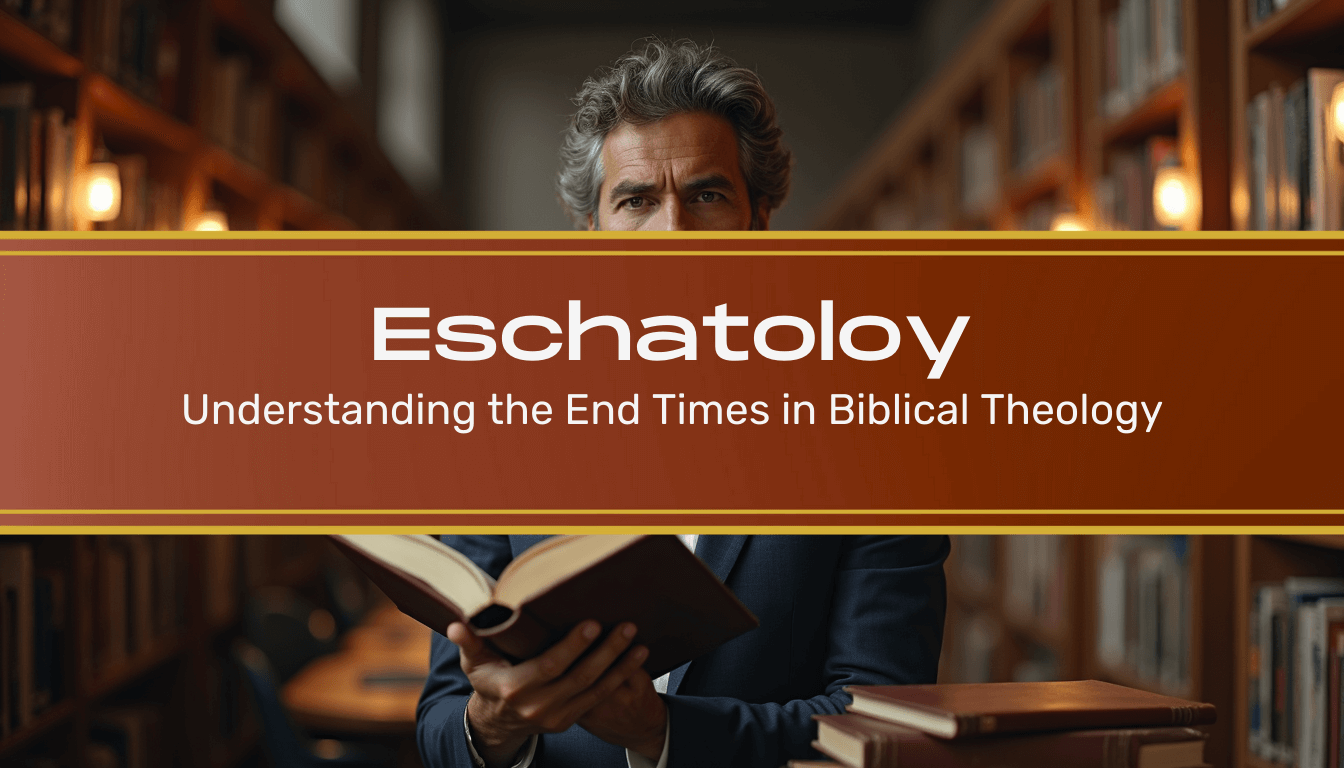
Premillennialism
A Literal View of the Millennium
Here's what drives many Christians to premillennialism: they read Revelation 20 and think, "If God meant a thousand years, why not say a thousand years?" That straightforward view pushes back against theological moves that feel like they strip plain language of its force. Micro-promise: Premillennialism takes God at His word about a literal reign of Christ on earth, and for many that literal reading restores hope about the coming kingdom.
I get the appeal. When Jesus promises to return and establish His kingdom, a plain reading feels faithful to the promise of the Lord Jesus. When Revelation speaks of a thousand-year reign, premillennialists say, "We’ll take the text at face value." That no-nonsense hermeneutic offers a clear expectation—Christ's return ushers in a distinct period in redemptive history.
Still, taking Scripture literally isn't the same as taking it literalistically. Good interpretation pays attention to genre and context: Revelation mixes symbolic imagery with concrete claims. So the real question is how to read the Bible faithfully in its literary and historical setting, not whether anyone believes in Christ's return.
Premillennialism presents a vivid view of the future reign of Jesus Christ, but it also forces us to wrestle with interpretation, eschatology, and what the kingdom looks like in time and today. Read on to see the essentials.
Sharp Edge: If your eschatology makes you more excited about a future earthly kingdom than you are about Christ's current spiritual reign, you might be missing the point of why He came the first time.
What Premillennialism Actually Teaches
Christ Returns Before the Millennium
“Pre” means Christ returns before a future, distinct thousand-year period. That separates this view from postmillennialism (Christ returns after the millennium) and amillennialism (the millennium is the present church age, not a future political era).
The Millennium Is Taken Literally
Premillennialists point to Revelation 20’s repeated reference to a thousand years as grounds for a literal thousand-year reign. In their view, the millennial kingdom is a real, historical era when Jesus Christ will reign on earth from Jerusalem, fulfilling Old Testament prophecies (e.g., Isaiah 2:2–4; Zechariah 14:9).
Satan Is Restrained
Revelation 20:2–3 describes Satan bound and confined for the thousand years. Premillennialists read this as a decisive restriction of his activity so that peace and righteousness can increase during that time.
Two Resurrections and Final Judgment
Revelation 20:5–6 speaks of a “first resurrection” of believers who reign with Christ and a later resurrection for final judgment. Premillennialists generally understand these as two distinct, physical resurrections separated by the millennium, which has implications for doctrine about death and life in the coming age.
How This Fits Redemptive History
In premillennial thinking, the coming reign is part of God’s unfolding historical plan: promises to Israel and the Old Testament prophecies find fulfillment in a future, earthly phase of the kingdom of God. That historical sequence—Christ’s coming in glory (Revelation 19) followed by the millennium (Revelation 20)—is read as chronological by many who hold this view.
These core claims shape a hermeneutic that treats certain prophetic passages as anticipatory history rather than purely symbolic material. Next: how that view splits into different schools of premillennial thought.
The Two Main Types of Premillennialism
Historic Premillennialism
An early, simple view associated with some church fathers (e.g., Justin Martyr, Irenaeus):
Christ returns after the tribulation
The church endures tribulation but experiences God's protection
Israel and the church are seen together as one people within God's plan
The millennium fulfills Old Testament promises and renews creation
Historic premillennialism emphasizes Christ's victory and the restoration of creation as part of redemptive history rather than intricate prophetic charts.
Dispensational Premillennialism
Developed in the 19th century, this view constructs a detailed historical timeline and distinguishes Israel and the church:
Often teaches a rapture of the church before a seven-year tribulation
Maintains separate promises and future roles for Israel and the church
Builds timelines from Daniel's prophecies (e.g., the seventy weeks)
Strongly favors literal readings of prophetic passages
Dispensational premillennialism focuses on prophetic detail and the future earthly kingdom, shaping a distinct hermeneutic and a different pastoral outlook than the historic view.
In short: historic premillennialism roots the millennium in early church expectation and cosmic renewal; dispensational premillennialism organizes end-time events into a precise historical sequence that centers future fulfillment on earth.
Biblical Evidence Premillennialists Cite
Quick summary of the evidence
Revelation 20 (plain reading) — The passage names a thousand years, Satan bound, martyrs raised to reign with Christ, and a final rebellion; premillennialists read these as concrete events pointing to a future millennial kingdom.
Old Testament prophecies — Texts like Isaiah 65:20 and Zechariah 14:16–19 describe a renewed earthly order and nations worshiping in Jerusalem, which many take as fulfillment in a future historical phase of God's kingdom on earth.
Jesus and the apostles — Passages such as Matthew 19:28 (disciples reigning in the regeneration) and 1 Corinthians 15 (the bodily nature of resurrection) are cited to support a literal reign and two distinct resurrections separated by the thousand years.
Redemptive-historical fit — Premillennialists argue these passages form a coherent sequence in salvation history: Christ’s coming in glory (Revelation 19) followed by a historical millennial reign (Revelation 20) that fulfills God’s promises to Israel and renews creation.
Common objections and short responses
Objection — Revelation is symbolic: Critics note the book’s vivid imagery (beasts, lakes of fire) and ask why numbers should be literal.
Response: Premillennialists reply that symbolic genre does not force every element to be non-literal; numbers can denote actual time (a thousand years) even as other imagery remains symbolic.
Objection — Christ already reigns: If Jesus is King now (Matthew 28:18), why expect a future earthly reign?
Response: Many who hold the premillennial view distinguish Christ’s present spiritual reign through the church from His future physical reign on earth—two realities operating in different modes and times.
Objection — Why have a temporary golden age?: If the millennium ends with rebellion and judgment, why not proceed straight to the eternal state?
Response: Premillennialists say the thousand years test humanity under ideal conditions to vindicate God's justice and demonstrate that sin is the human problem, not merely bad circumstances.
How this matters for hermeneutics and eschatology
These evidence points shape a hermeneutic that often privileges historical-grammatical reading of prophetic passages and treats certain prophecies as promises that will find future fulfillment in time. That hermeneutic pushes eschatology toward careful attention to texts, timelines, and the relationship between heaven and earth in the coming age.
Next we'll look at how those convictions produce different practical and pastoral outcomes among believers.
Why Some Christians Embrace Premillennialism
Why people are drawn to this view
It takes prophecy seriously. Premillennialism treats prophetic passages as meaningful predictions rather than only spiritual metaphors, which appeals to those who want to honor biblical promises about the coming kingdom.
It offers concrete hope. The picture of Jesus Christ reigning on earth promises real justice, peace, and restoration for life in this world—comforting for believers facing persecution or suffering today.
It honors Old Testament promises. For many, the millennium fulfills God’s commitments to Israel and fits the redemptive history laid out in the prophets.
It explains present brokenness. By distinguishing Christ’s present spiritual reign from a future physical reign, premillennialism accounts for why the world remains imperfect even though Christ reigns in heaven.
Why some Christians reject it (brief)
Postpones the kingdom: Critics say it makes the kingdom primarily a future political reality instead of a present spiritual reality.
Can encourage escapism: Focus on rapture timetables may distract people from kingdom work now.
Overemphasizes Israel: Dispensational forms especially can feel to some like they diminish the church’s role in God’s plan.
Practical guidance for premillennial believers
Maintain present faithfulness. Let hope in Christ’s return fuel obedience, not passivity—serve your church and community now.
Avoid date‑setting. Jesus warned that no one knows the day or hour (Matthew 24:36); focus on readiness rather than prediction.
Practice humility and charity. Faithful Christians disagree about eschatology—hold your view with conviction but love fellow believers who differ.
Focus on Christ, not charts. Study prophetic texts to know the Lord better; let eschatology deepen worship rather than become an idol of speculation.
We don't sidestep hard topics. We face them with Scripture, honesty, and respect. Start by exploring our category pages—they're practical and built to help you think biblically. If what you find is useful, take your time and drill down into the articles within each category. If you do, you'll learn a lot—and you'll be better equipped to live like Christ.
Premillennialism: A Literal View of the Millennium - Explore the premillennial view that Christ will return to establish a literal thousand-year reign on earth.
Postmillennialism: A Hopeful View of the End Times - Discover the postmillennial perspective that emphasizes the church's role in advancing God's kingdom before Christ's return.
Dispensationalism: Understanding God's Plan for Israel and the Church - Learn how dispensationalism distinguishes between God's plans for Israel and the church in end times prophecy.
Put this into practice (short list)
Read Revelation 20 in its context; note where imagery is symbolic and where the text makes concrete claims.
Compare Ephesians 2:1–6 with Revelation 20:5 to reflect on spiritual resurrection and hope for future bodily life.
Study Matthew 13 to see how Jesus describes the kingdom’s present growth through the church as a way of living today.
Serve in your local church—living as a citizen of Christ’s kingdom is the clearest testimony to any view of the millennium.
Live faithfully now; discuss these views in charity.
Sharp Edge: If you're so focused on when Jesus will become King that you're ignoring the fact that He already is King, you're missing the entire point of living in His kingdom right now.
Conclusion
Amillennialism doesn’t deny the millennium so much as redefine its timing: this view reads the millennium as the present church age, when Christ reigns spiritually through his people and Satan’s influence is restrained. That interpretation places the kingdom of God within current redemptive history rather than as a future political era on earth.
That said, different views (including premillennialism) all try to reckon with the same biblical promises about Jesus Christ’s return and the fulfillment of God’s promises to Israel and the nations. Whether you emphasize a future thousand years, a present reign, or some combination, the core hope is the same: the coming of Christ brings ultimate renewal, judgment, and peace for creation.
So here’s the simple pastoral takeaway: let your eschatology shape how you live today. Avoid speculation about dates and charts; pursue holiness, serve your neighbors, and hold your doctrine with humility. Live faithfully now, study Scripture in context, and love fellow believers across these differences—because the central truth is not a timeline but the Lord Jesus himself and his coming kingdom.

Chris Daniel, just a servant of Christ calling others to be ready. Like the Bereans, I try to examine Scripture daily to see if what I hear is true. If you're struggling to live as we're called, you're still in the fight. Don't give up.
Category 2 - Christian Apologetics

Category 3 - Bible Study

Category 4 - Theology


"Most middle-class Americans tend to worship their work, work at their play, and play at their worship. As a result, their meanings and values are distorted. Their relationships disintegrate faster than they can keep them in repair. Their lifestyles resembles a cast of characters in search of a plot." - Gordon Dahl
"The Bible is a reliable collection of historical documents written down by eyewitnesses during the lifetime of other eyewitnesses that report supernatural events that took place in fulfillment of specific prophecies and claimed their writings were divine rather than human in origin."
- Dr. Voddie Baucham on 2 Peter 1






